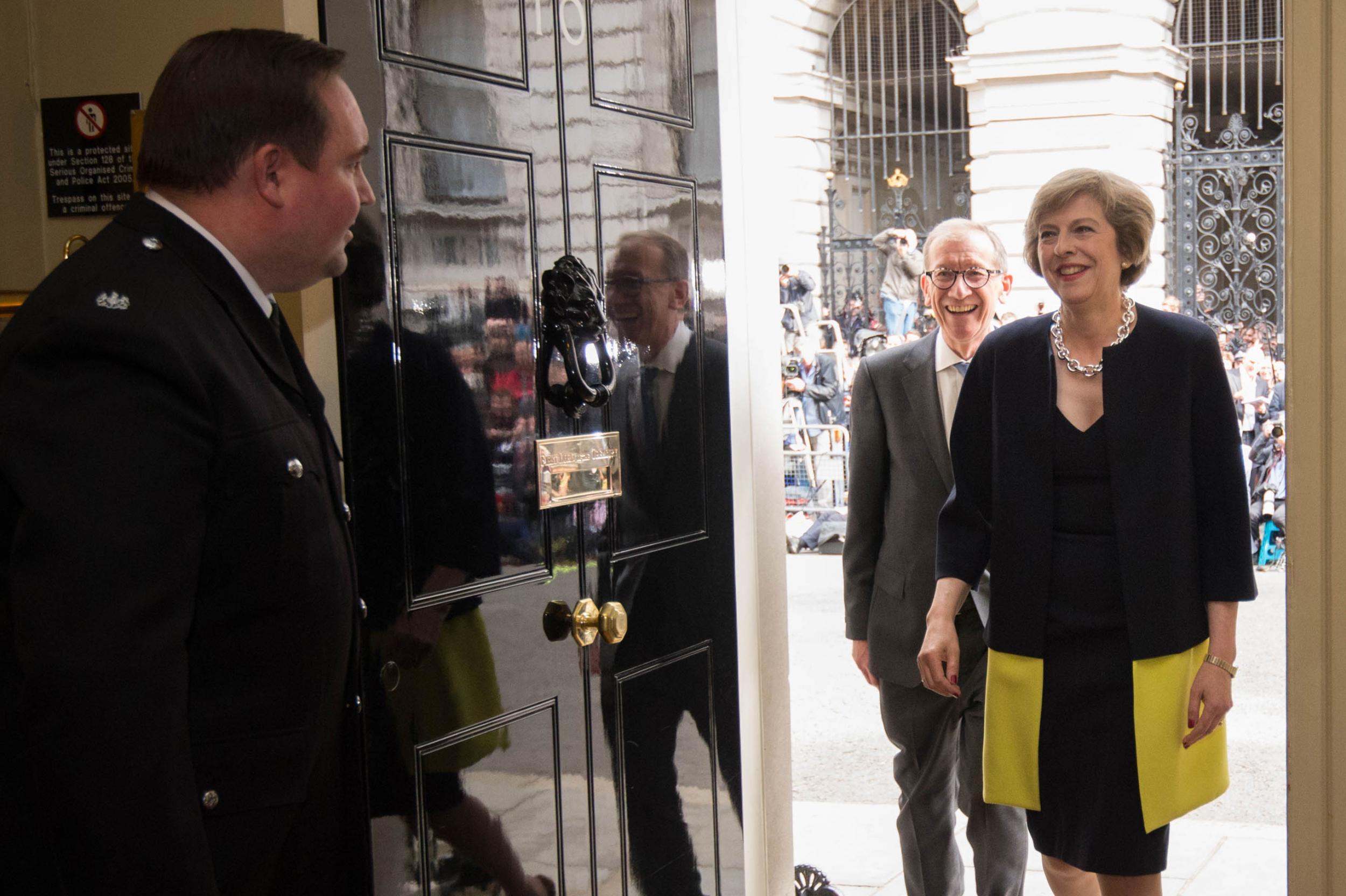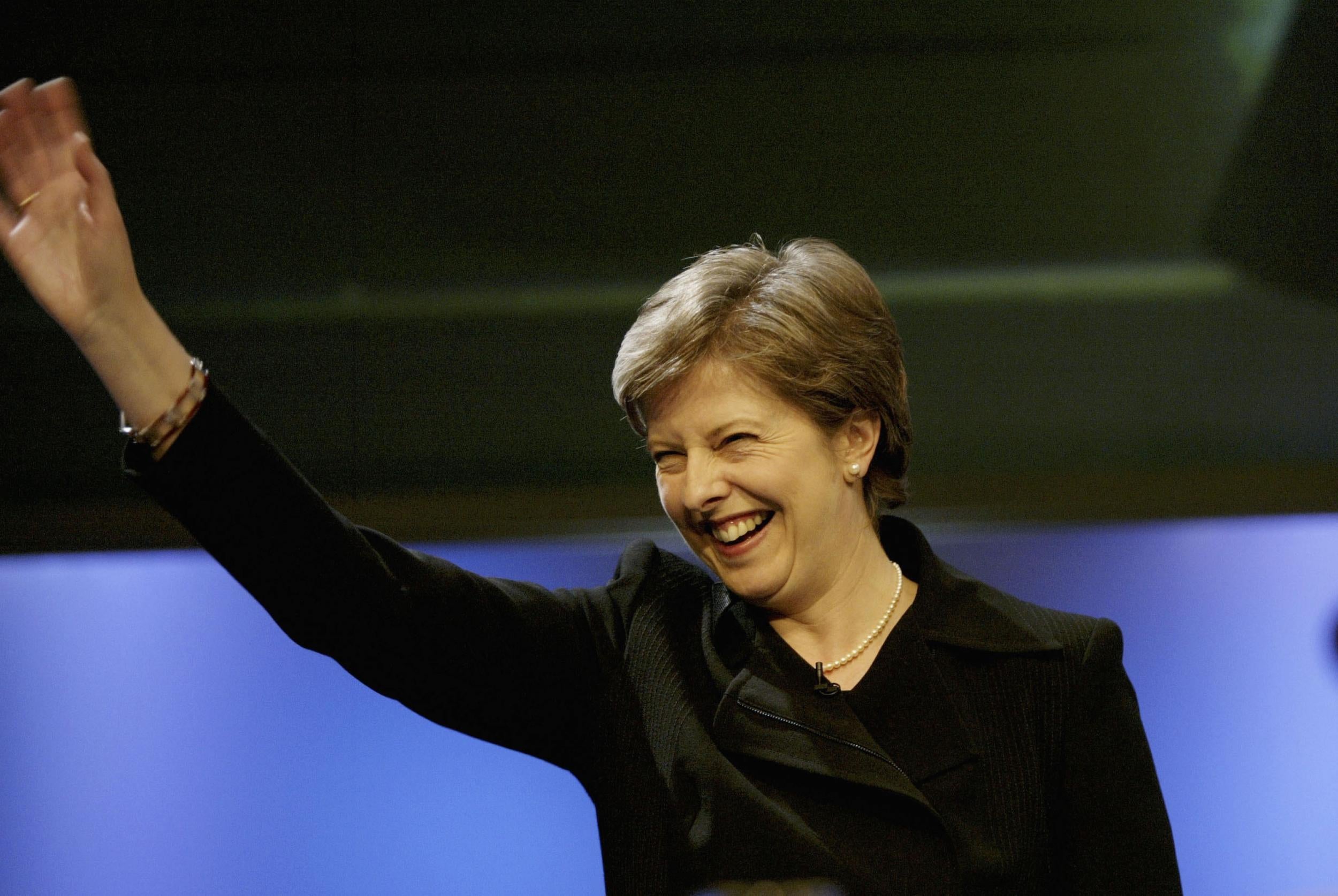All the anti-gay and lesbian stances Theresa May has taken in her political career
The Prime Minister's stance on equal rights has softened over the years

Your support helps us to tell the story
From reproductive rights to climate change to Big Tech, The Independent is on the ground when the story is developing. Whether it's investigating the financials of Elon Musk's pro-Trump PAC or producing our latest documentary, 'The A Word', which shines a light on the American women fighting for reproductive rights, we know how important it is to parse out the facts from the messaging.
At such a critical moment in US history, we need reporters on the ground. Your donation allows us to keep sending journalists to speak to both sides of the story.
The Independent is trusted by Americans across the entire political spectrum. And unlike many other quality news outlets, we choose not to lock Americans out of our reporting and analysis with paywalls. We believe quality journalism should be available to everyone, paid for by those who can afford it.
Your support makes all the difference.Liberal Democrat leader Tim Farron has been forced to deny he believes gay sex is a sin after days of intense questioning.
The MP, who is a devout Christian, had previously attempted to dodge the issue but said on Tuesday that he did not believe it was not his job “to pontificate on theological matters”.
When he was asked the same question in 2015 he replied: “we’re all sinners”.
Mr Farron said he was still in favour of gay rights and supported equal marriage and LGBT equality but critics highlighted his mixed voting record in parliament on giving gay people equal protection from discrimination.
But Prime Minister Theresa May has an unequally uneven track record in standing up for LGBT rights in parliament, having joined in with Conservative opposition to much of the equality legislation passed by the New Labour government between 1997 and 2010.
Despite being the person who coined the phrase “the nasty party” to describe popular perception of the Tories during their years in opposition, Ms May followed the party’s position on equal rights which David Cameron would then reverse in a bid to modernise the party when he became leader in 2005.
Here are some of the LGBT rights measures she has voted for and against since she was first elected as MP for Maidenhead in 1997:
On 22 Jun 1998: Voted against reducing the age of consent for homosexual acts from eighteen to sixteen bringing equality to the law affecting heterosexual and homosexual acts.
On 4 Nov 2002: Voted no on Adoption and Children Bill — Suitability Of Adopters, which would allow gay couples to adopt.
On 10 Mar 2003: Absent for a vote on Local Government Bill — Maintain Prohibition on Promotion of Homosexuality (Section 28)
2004: Absent for all four votes on the Gender Recognition Bill — which before Civil Partnership would allow a marriage to remain valid if one partner goes through gender reassignment treatment
On 12 Oct 2004: Voted to introduce Civil Partnerships for LGBT couples
On 19 Mar 2007: Absent for a vote on Equality Act (Sexual Orientation) Regulations

On 20 May 2008: Voted in favour of a backbench bid to force clinic to consider the need for a “father and mother” before allowing women to seek IVF treatment – threatening the rights of lesbian couples
2010 First act as Home Secretary is to make sure public bodies did not have to actively try to reduce inequality
On 5 Feb 2013: Voted in favour of allowing same sex couples to marry.
On 16 Apr 2013: Voted to remove the duty on the Commission for Equality and Human Rights to work to support the development of a society where people's ability to achieve their potential is not limited by prejudice or discrimination and there is respect for human rights.
On 5 Mar 2014: Voted to enable the courts to deal with proceedings for the divorce of, or annulment of the marriage of, a same sex couple.
On 5 Mar 2014: Voted to make same sex marriage available to armed forces personnel outside the UK.
Her voting record on LGBT rights shows a definite softening over the years, Pink News reported.
She was later responsible for helping to draft the legislation with Equalities Minister Lynne Featherstone which led to the implementation of same sex marriages in 2014.
She was the one to suggest the Conservatives were planning to look at introducing gay marriage in 2010 and later said she had changed her mind on gay adoption.
She told Question Time: “I have changed my view. If those votes were taken today, I would take a different vote.
“On gay adoption I have changed my mind… because I have been persuaded that when you are looking at the future for a child, I think it’s better for a child who is perhaps in an institutional environment, if they have an opportunity of being in a stable, family environment – be that a heterosexual couple or a gay couple.”
In her book on the passage of the law, Baroness Featherstone praised Ms May as the “unsung hero” in the push for gay marriage against the furious protests of some elements of the Tory grassroots.
But others say her stance has not evolved enough with refugee campaigners saying the conditions and treatment of LGBT asylum seekers had worsened during her tenure as Home Secretary.
Join our commenting forum
Join thought-provoking conversations, follow other Independent readers and see their replies
Comments